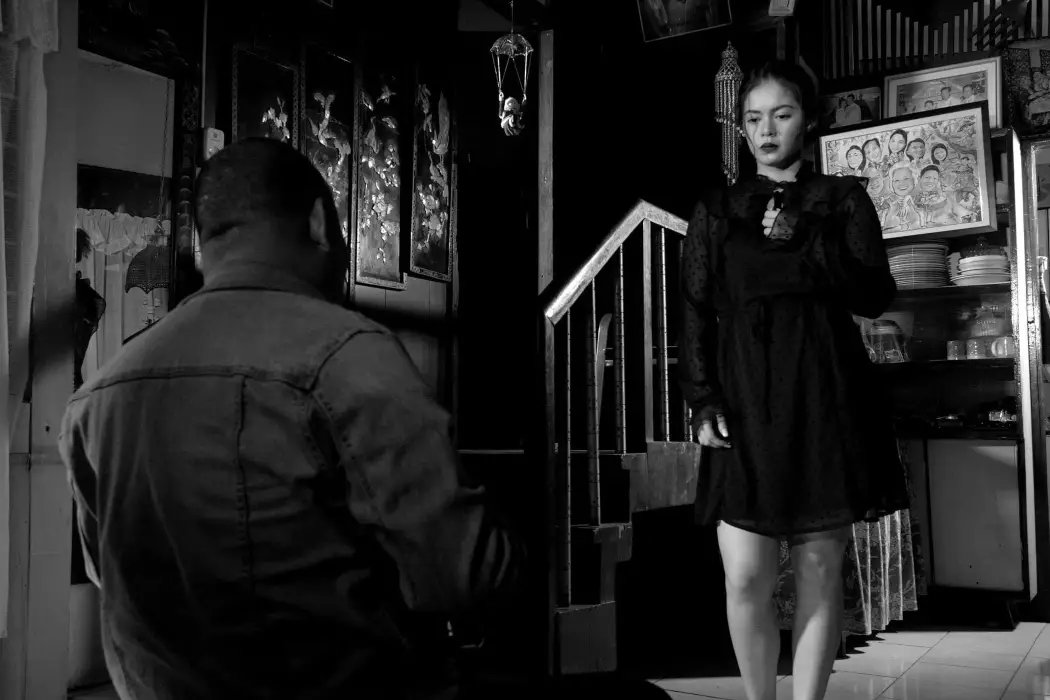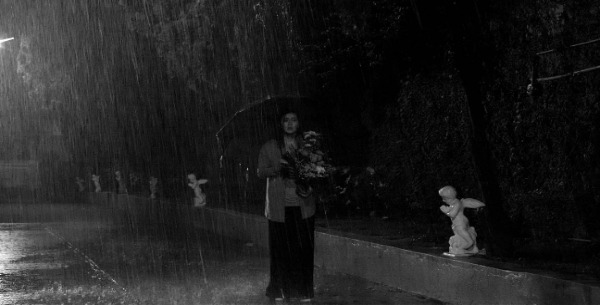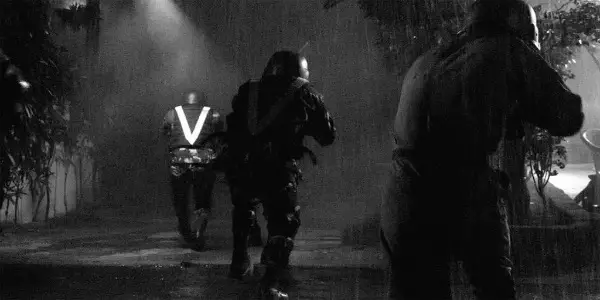THE HALT: Lav Diaz in the Age of Pandemic

Lover of all things cinema, Hayden Welch is a Chicago-based…
For those largely unfamiliar with Filipino cinema, it is absolutely crucial to understanding the backbone of The Halt that you become acquainted with Lav Diaz. Diaz is a 61-year-old filmmaker from Datu Paglas. He is perhaps most well known for his 2013 critical darling Norte, the End of History, or his eleven-hour behemoth Evolution of a Filipino Family. Diaz works best with extended runtime(s) and relevant commentary that somehow manages to combine this relevant demand for social change while still utilizing narrative and philosophical templates as timeless as Crime and Punishment.
As the aforementioned runtime – his newest feature clocking in at just over four-and-a-half hours – seems to often turn people away, I have to urge you to let this master lull you into a sense of extended security with his lengthy pieces. Often taking the serene and largely unknown beauty of the Filipino countryside as a muse, or in some cases, its own character, Diaz takes these inherently political issues and turns them into a more humanist dilemma as opposed to a leftist plight, and in doing so he makes it more universally appreciative.
A Look at the Inception of The Halt
With Lav Diaz’s newest feature he paints engulfed in illness, fascism, and catastrophe. That’s not to say The Halt is as bleak a picture as something that Béla Tarr would produce, as this Filipino legend has always had a more optimistic and long-sighted perspective, and for that, I find his philosophical ideas to be much more urgent and fascinating. To backtrack on a single word that comes to mind when viewing this artist is “urgent.”

With works such as his 2016 character epic The Woman Who Left a woman’s trauma and how she reclaimed her identity, and how that transition affected everyone surrounded her, right as the #MeToo movement was gaining traction. And while many studio films, and even other independent auteurs, may take two to three years after to tackle a subject with such grace Lav Diaz can film and distribute something profound and impactful in a matter of months.
He did this with his arthouse breakthrough Norte, the End of History as he tackled reformed male toxicity and pseudo-intellectualism that was becoming more rampant within that era, at least in the public eye, and he did it such a slick and fast way that the film was still extremely relevant as the conversations continued.
Here and Now: The Halt
As society becomes twisted and distorted in our actual lives, The Halt now feels like a prophetic tale. It uses a flu outbreak, something that would be the central plot of any other film, as a jumpstart. What The Halt feels is most important is the reaction, not the cause. It utilizes its extensive runtime to illustrate this mosaic of catastrophe. Much like the events plaguing us today, what is most important is how people react, and in an ideal world, we would all congregate and decide together; unfortunately, we are not in a utopia. The Halt takes that dilemma and adds another layer by posing this question, “what if even, our world leaders, were completely out of the loop?”

This daring ability to create these semi-tangible situations, that lack a pandering mentality is so bold especially when you’re dealing with such a large and expansive narrative. I think Diaz has loosened up within the past five years with his cinematic sensibilities, and this is a perfect example of that. For instance, in 2008 he released an eight-hour exploration into the lives of Filipino prostitutes, and everything within that film felt so precise and mechanical, yet with works like The Halt and Florentina Hubaldo, CTE you can see his gears turning as he allows the actors and landscape to guide him through this complex social map.
Socially I appreciate what Diaz brings to the table more than what he attempts to change or address. Rather than make a grandiose statement about how he would personally remedy these issues he presents us with a dilemma and allows us to let it wade in our minds, constantly changing how we, as an audience, would progress. That in itself is what makes The Halt a unique and essential experience.
Have you seen the film? What did you think? Let us know in the comments below!
Watch The Halt
Does content like this matter to you?
Become a Member and support film journalism. Unlock access to all of Film Inquiry`s great articles. Join a community of like-minded readers who are passionate about cinema - get access to our private members Network, give back to independent filmmakers, and more.
Lover of all things cinema, Hayden Welch is a Chicago-based film student and writer at DePaul University. He is a Rotten Tomatoes-approved critic who appreciates Twin Peaks, Bob Dylan, and all things outlandish.













